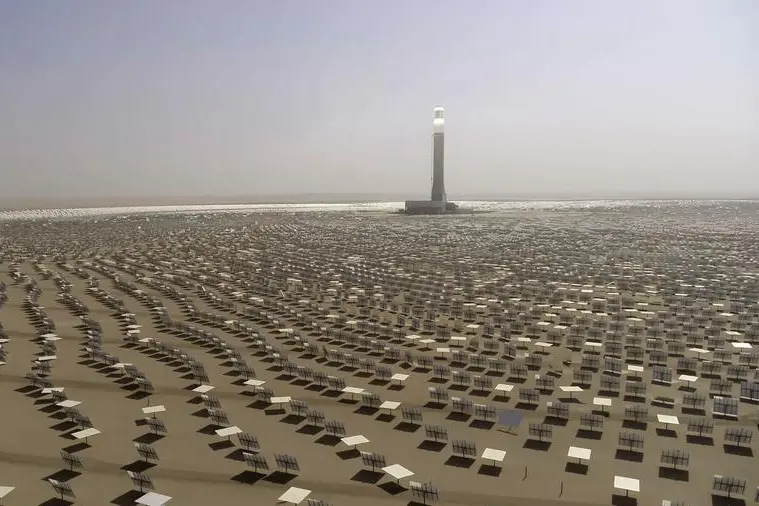PHOTO
Dubai, UAE: In line with its commitment to utilise innovation to find sustainable solutions to current and future challenges, Dubai Electricity and Water Authority (DEWA) uses the latest disruptive technologies of the Fourth Industrial Revolution to enhance the efficiency of its operations and elevate its projects and initiatives, especially in clean and renewable energy. This promotes sustainability and supports achieving the Dubai Clean Energy Strategy 2050 and the Dubai Net Zero Carbon Emissions Strategy 2050, aiming to provide 100% of the energy production capacity from clean energy sources by 2050.
Enhancing Efficiency
By adopting the latest photovoltaic solar energy technologies at the Mohammed bin Rashid Al Maktoum Solar Park, DEWA has doubled the production efficiency of photovoltaic solar panels from 11% in the first generation of panels equipped with thin-film technology, to 22% currently as a result of using the latest technologies. These include cleaning robots for photovoltaic panels without using water, as well as using the latest solar photovoltaic bifacial technologies with Single Axis Tracking to increase electricity output per area.
In addition to photovoltaic solar panels, DEWA utilises Concentrated Solar Power (CSP) technologies in the fourth phase of the Solar Park. This phase uses three hybrid technologies to produce clean energy: 600MW from a parabolic basin complex (three units of 200MW each), 100MW from the world’s tallest solar power tower (based on Molten Salt technology), and 250MW from photovoltaic solar panels. The project integrates 70,000 mirrors (heliostats) that track the sun’s movement. The Molten Salt Receiver (MSR) on top of the solar power tower turns solar radiation into thermal energy. It contains over 1,000 thin tubes that enable the absorption of sun rays and their transfer to the molten salt within these tubes.
Advanced R&D efforts
DEWA’s Research and Development (R&D) Centre at the Mohammed bin Rashid Al Maktoum Solar Park enhances Dubai’s position as a global hub for research and development in solar power, smart grids, energy efficiency, and capacity building in these sectors. The centre published 71 Scopus-indexed scientific and research papers in 2023 in high impact peer-reviewed journals, and international scientific conferences. This brings the total number of scientific papers published by the Centre to 218 by the end of last year. Additionally, DEWA R&D Centre has filed 36 patent applications to protect DEWA’s intellectual property. The papers and patents cover various topics, including solar energy, water, energy efficiency, smart grid integration, space, and the Fourth Industrial Revolution technologies. The R&D Centre employs 29 PhD and master’s degree holders with an Emiratisation rate of 73.5%.
Labs to increase efficiency
The R&D Centre has various labs to support the projects of different research areas. For the performance and reliability of photovoltaic solar panels, the R&D Centre infrastructure includes Solar indoor testing and accelerated aging lab; Outdoor Test Facility (OTF) for continuous monitoring of solar photovoltaic module performance in actual conditions, a Building-Integrated Photovoltaics (BIPV) testing facility, and a Cleaning Test Field for robotic solutions. Additional labs support activities in Robotics and Drone; 3D Printing systems that can utilise more than 20 materials; advanced materials for energy storage; smart grid real-time simulator lab; the Green Hydrogen pilot project; Internet of Things (IoT) lab; and a satellite ground station for DEWA’s space programme (Space-D).
DEWA R&D Center develops solutions to enhance efficiency and cost of DEWA operations. These include automating inspection and maintenance of overhead lines, low-cost flexible IoT terminals to monitor remote substations, early water leakage detection at pipeline and building level, advanced grid analytics for asset management and preventive maintenance, and high-resolution solar irradiance forecasting to reduce operating reserve costs, among other advanced solutions.




















